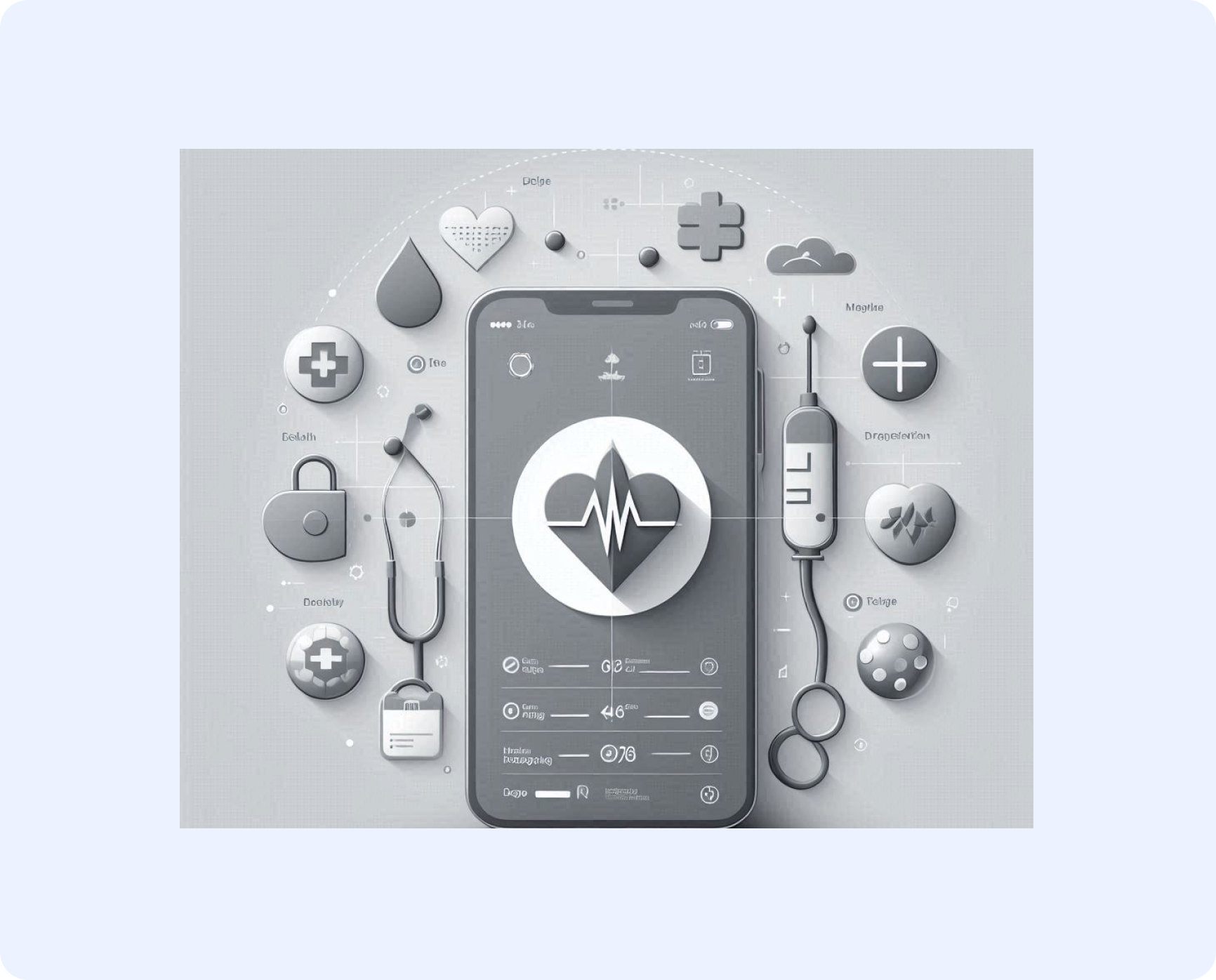Healthcare App
A Healthcare App is a digital platform designed to enhance the delivery of medical services and patient care. It facilitates seamless communication between healthcare providers and patients, supports the management of medical records, and provides tools for scheduling appointments, remote consultations, and tracking patient health metrics. This app aims to improve healthcare accessibility, enhance patient outcomes, and optimize the efficiency of medical practices.
Features of Healthcare App:
-
Patient Portal: Secure login for patients to access personal health records, lab results, and prescriptions.
-
Appointment Scheduling: Online booking system for appointments with automatic reminders and calendar integration.
-
Telemedicine: Video conferencing tools for remote consultations and follow-ups.
-
Electronic Health Records: Comprehensive management of patient records including medical history, treatment plans, and allergies.
-
Prescription Management: E-prescribing functionality allowing doctors to send prescriptions directly to pharmacies.
-
Billing and Insurance: Integrated billing systems to manage payments, insurance claims, and patient invoicing.
-
Health Monitoring: Integration with wearable devices for real-time tracking of vital signs and physical activity.
Technical Specification
- Python with Django: Well-suited for data-intensive applications requiring robust security features.
- Java with Spring Boot: Offers a powerful stack for building high-performance RESTful APIs.
- PostgreSQL: A reliable and secure choice for storing sensitive healthcare data.
- MongoDB: Offers flexibility in handling unstructured data such as medical images and health records.
- React.js: Ensures a responsive and interactive user interface.
- Angular: Provides a structured framework for building dynamic web applications.
- Swift for iOS: Ensures optimal performance and integration with Apple’s ecosystem.
- Kotlin for Android: Offers modern language features that integrate seamlessly with Android.
- Kubernetes: For managing containerized applications with scalability and deployment efficiency.
